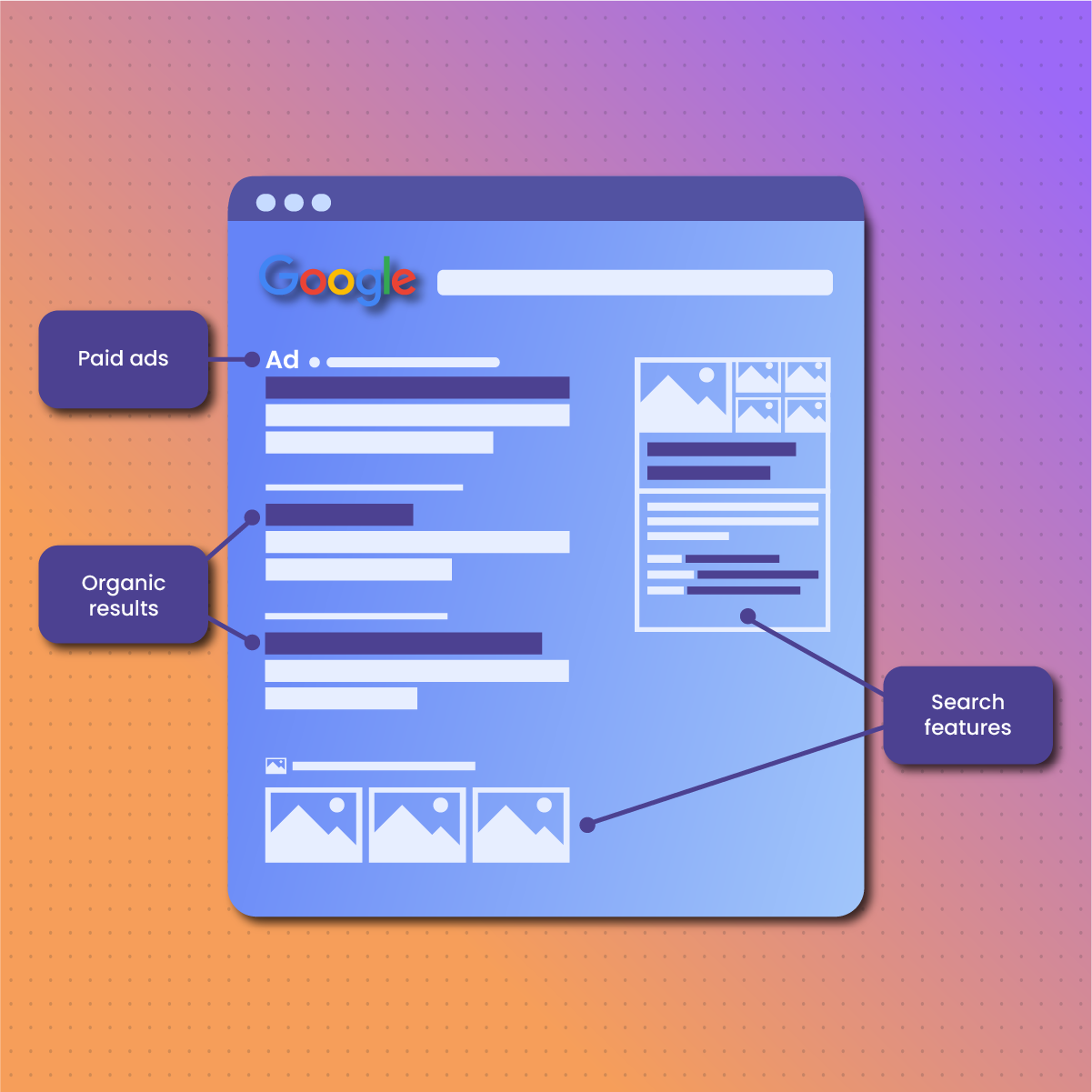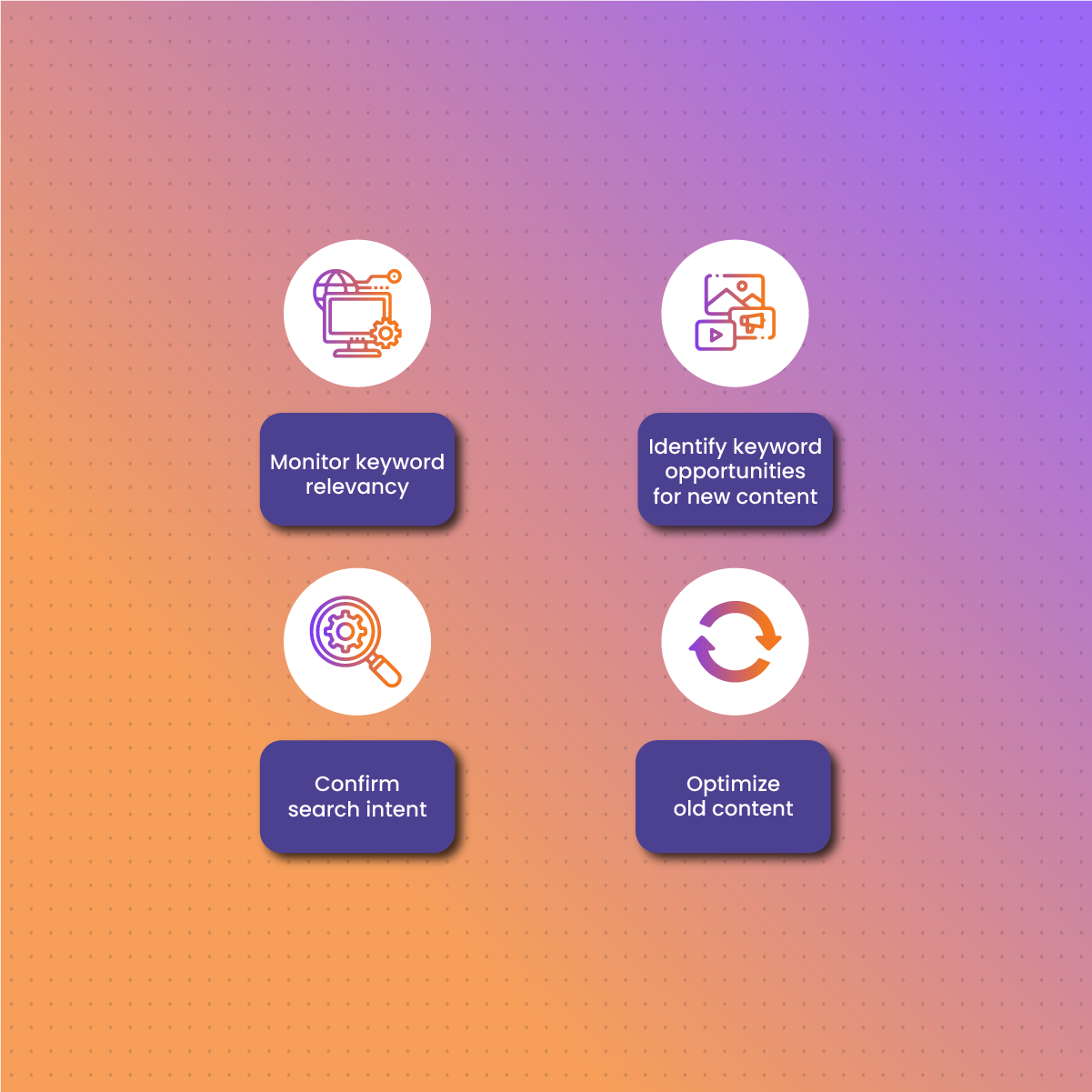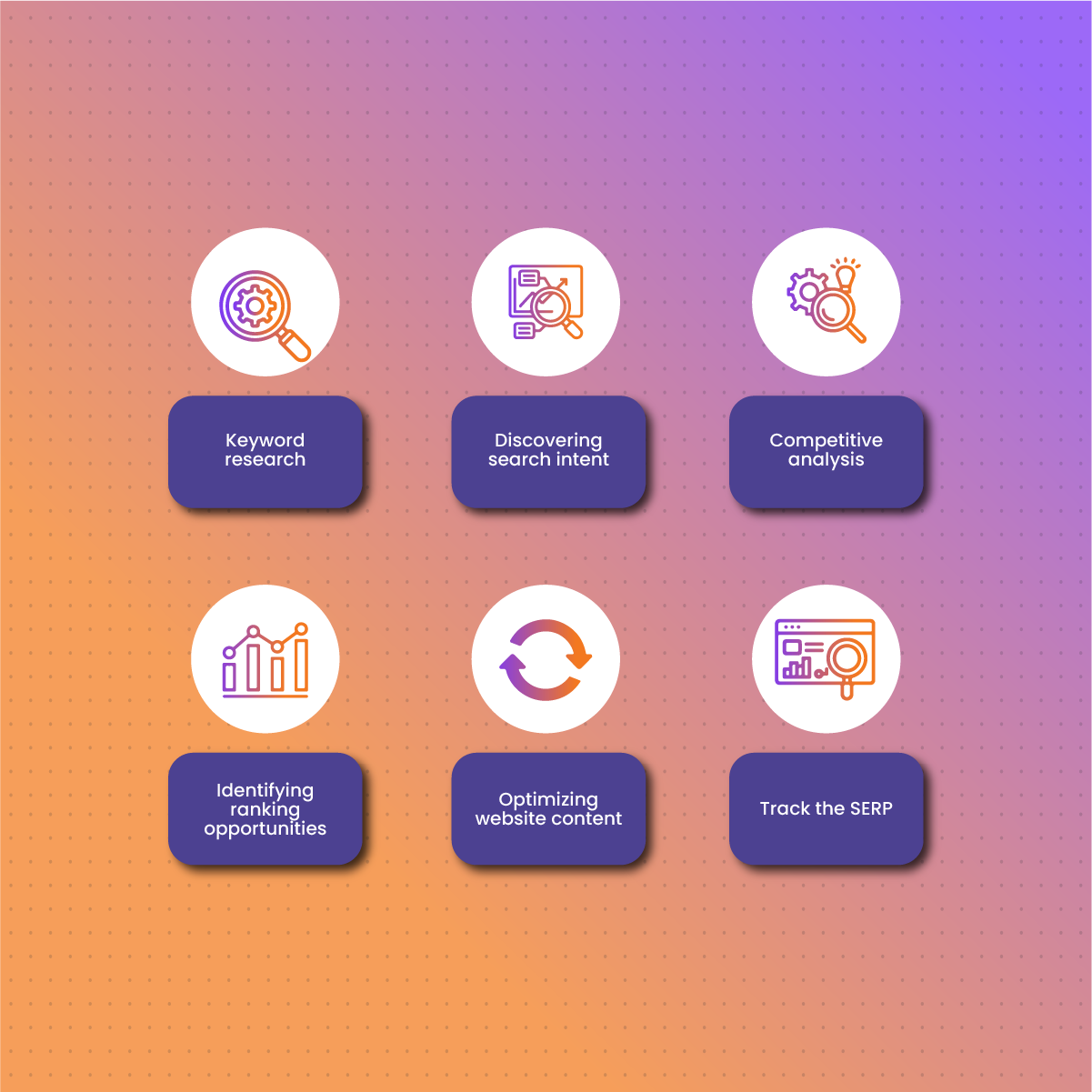Introduction To SERP Analysis
The 2020 pandemic solidified the need for businesses to grow their online presence. Gone are the days when customers need to physically go to stores, restaurants, and offices. Instead, they can speak to a customer representative, make inquiries, and find service providers as long as they have a smart device and internet connection.
Search engines can display the result associated with any question or keywords related to a specific industry. Since there are various organizations within an industry, how does the search engine determine which ones to display? This is where the search engine result page for SERP ranking analysis comes in.
Understanding SERP ranking provides insights into a website’s visibility when related keywords are typed into the search bar. One study indicates that over 71% of search traffic comes from the first page. In addition, about 75% of Google users do not go beyond the first page. Therefore, the need for business websites to rank and become visible is a fundamental concern.
As a result, this guide will examine SERP, its significance, how it works, and optimizing it with NetNut proxies.
What is SERP?
SERP, which is known as a search engine result page, as the name suggests, is a list of responses that a search engine returns in response to a query. It includes a list of web pages ranked by relevance, alongside other features like ads, snippets, and knowledge graphs. The goal of SERP is to provide users with the most relevant and useful information related to their search query. Subsequently, the results on the first page are determined by the algorithm based on their relevance to the query.
There are three categories of websites on a search engine result page. They include pages that the search engine spider has crawled and indexed, web pages that have been manually added to the search engine’s directory, and pages that appear because they paid to appear on the first page. Subsequently, search engines use complex ranking characteristics and algorithms to analyze indexed web pages in real-time so that a user gets the best result.
SERP works by placing web pages on the page from the one with the most relevant content. In addition, the search engine considers factors like location and browser history when displaying results.
Here are some factors that can affect the ranking of a webpage on a search engine result page:
Keywords
One of the factors that can determine a web page’s ranking is the number of relevant keywords. Therefore, using comprehensive keywords relevant to a topic has a positive effect on its ranking. This is quite different from keyword stuffing, which is frowned upon by search engines. Therefore, ensure you use the right tools to check the keyword density of your articles and blog posts to optimize their ranking.
Backlinks
Backlinks are links to external websites on a topic that is relevant to the main keyword. Therefore, the number of quality backlinks should be considered for SERP ranking analysis. When you add a link to a reputable website, it allows Google Algorithm to see your web page as trustworthy and an authority on the subject. Subsequently, this can affect the web page ranking on SERP.
User experience
User experience is another factor that must be considered in SERP ranking analysis. Google Algorithm considers factors like loading speeds, ease of use, security, and how long visitors stay on the page. Subsequently, these factors are considered when ranking web pages on result pages.
Organizations
Search engine algorithms appreciate a well-organized web page. For example, Google Algorithm will rank a website higher if it is organized in a simple way that is easy for customers to use and navigate.
Trust signals
Search engines consider trust signals on a page when ranking it on SERP. These signals could include the number of traffic, external links, internal links, credibility, and security over the years. Therefore, for SERP ranking analysis, these trust signals play a significant role.
Features of SERP
Search engines like Google, Bing, and Yahoo have unique metrics for SERP ranking analysis. Here are some features that are considered for the search engine results:
Featured Snippets
These are pieces of content displayed at the top of the SERP. When a query is in the form of a question, the featured snippets will choose content from a webpage that answers the question.
Rich snippets
Rich snippets provide information about businesses. They usually appear below the page title and provide crucial details like rating and how expensive a business is.
Videos
Videos are another feature of SERP. They can be displayed above organic results based on their relevance. However, videos are often displayed below images and featured snippets.
Images
Images are one of the oldest and most popular SERP features. When you type a query into the search box, it can display the graphical representation that best answers your questions.
Local pack
A local pack is a feature that displays local businesses. For example, when you search for a particular business in California, a map will appear to help you identify locations deemed relevant to your query. In addition, it provides other information like ratings, phone numbers, opening hours, and more.
Knowledge graph
Also known as the knowledge panel, it is a box that is displayed on the right side of SERP. The knowledge graph pops up for informational queries, like when you need information about a person, business, or movie. For example, if you need information about a company, the knowledge graph will display the founders, logo, date of establishment, and other basic facts.
Top stories
Top stories often appear at the top of SERP for certain queries, especially those related to News events.
What is SERP Ranking Analysis?
SERP ranking analysis is the process of looking through search engine results pages to determine what websites are ranking the highest, what they are doing right, and how you can outrank them. This involves analyzing factors that influence rankings, such as keyword usage, backlinks, page load speed, and user engagement metrics. By performing SERP ranking analysis, businesses and SEO professionals can identify opportunities to improve their website’s visibility and performance in search engine rankings.
In digital marketing, your website is the first point of contact between your business and customers. Moreover, it is the primary source of SEO that allows you to rank high in search engine result pages.
When you review the top-ranking websites for keywords, you can easily discover what they are doing right to be in the highest positions. In addition, it involves seeing how your content performs on result pages.
What is the Significance of SERP Ranking Analysis?
Search engines like Google will not tell you how their ranking algorithm works. Regardless, these search engines continue to become more sophisticated. Therefore, conducting search engine result page analysis provides a comprehensive understanding of how they work.
Here are some of the reasons why your business may benefit from SERP analysis:
Monitor keyword relevancy
One of the reasons why SERP analysis is critical is that it provides more information about the keyword and its relevance to your niche. The website manager will generate a long list of keywords and even determine the difficulty level of a specific keyword. Some keywords can seem highly relevant, but research can indicate that they are wrong because the search intent behind the query does not match your content.
Therefore, before using any keyword, the SERP analysis allows you to understand its relevance in ranking your web page.
Identify keyword opportunities for new content
Another significance is it helps you identify keyword opportunities for new content. SERP ranking analysis is an excellent opportunity to find keywords for new content. Content creation is an essential aspect of ranking your web page. Ranking for a keyword requires having other supporting content that can push you to the top of the result. Therefore, SERP analysis provides an excellent strategy for planning keyword clusters.
Confirm search intent
Every user that types a query into the search box has a unique intention. Subsequently, this intention has a significant impact on the search term. Therefore, search intent plays a significant role in influencing the results returned by search engines. As a result, your content must satisfy the search intent of the user and the search engine algorithm.
SERP analysis is an excellent way to distinguish types of search intent. Subsequently, it helps you to understand what users want so you can fine-tune your content to satisfy their search queries.
In addition, understanding the search intent goes beyond “intent ” and so gives you insight into the opinions regarding your brand.
Optimize old content
Apart from new content, you can leverage SERP analysis to optimize existing content. For example, if your content is on the third page of search engine results, it has a high chance of moving up with the right optimization strategies. Subsequently, you can review the keyword density, the keyword cluster, and the backlinks. However, you can only be sure of the problem and how to solve it via SERP analysis.
Benefits of Running A SERP Analysis
Running a SERP analysis offers several benefits, including the ability to identify the most relevant keywords and optimize content to target those terms effectively. It helps in understanding the competitive landscape by analyzing the strategies of top-ranking pages. SERP analysis also provides insights into user intent and behavior, allowing businesses to tailor their content to meet the needs and preferences of their target audience. Additionally, it helps in monitoring changes in search engine algorithms and adjusting SEO strategies accordingly to maintain or improve rankings. By leveraging SERP analysis, businesses can enhance their online visibility, attract more organic traffic, and ultimately drive growth and conversions.
How to Perform SERP ranking analysis
Now, to the core of the discussion, how can you conduct SERP ranking analysis? While there are various approaches to performing SERP ranking analysis, the general process includes:
Keyword research
The first step in conducting SERP ranking analysis is keyword research. You can do this by creating a list of relevant keywords in your niche. At this stage, you may need to leverage keyword software like KWFinder to get a comprehensive list of these keywords.
In addition, the keywords should include short-tail keywords, long-tail keywords, and other suggestions that are relevant to your niche. In an attempt to conduct a SERP ranking analysis, you need to check the keyword difficulty and search volume to determine the importance of each keyword. Subsequently, it allows you to identify where these keywords rank, which can provide a comprehensive understanding of what people are searching for.
Once you have the keyword list, circle out those keywords you don’t rank for but are essential to optimize your website. For SERP ranking analysis, pay attention to keywords that include your brand name and physical locations.
Discovering search intent
After collecting all the relevant keywords, the next step in SERP ranking analysis is to determine the search intent. Examine the keywords closely to discover whether the search is relevant or not to your website. Therefore, in SERP analysis, the relevance of a keyword is influenced by the search intent.
The search intent could fall into any of these four categories including:
- Commercial intent- the user is conducting research on some products before making a purchase
- Navigational intent- the keyword was used in search of a specific brand or website
- Transactional intent- the aim of using the keyword was to purchase products or services
- Informational intent- the user is trying to gather information on a specific topic.
Subsequently, SERP ranking analysis allows you to identify the logic behind the keywords so you can decide if they are relevant to your business or not. Aside from exploring the search intent, be sure to examine the type of content to see if it is relevant to your niche. Once you have found these answers, you can optimize your content to increase SEO and conversion rates.
Competitive analysis
The next step in SERP analysis is to determine how you are ranked compared and what it would take to be on par or outrank the websites that are displayed as the top results. Subsequently, you may need tools like SERPChecker to get accurate information about the ranking pages. Here are some competitors information you can obtain to aid in the SERP ranking analysis:
- Keyword difficulty
- Number of external links
- Domain and page authority
- Citation and trust flow
- Average CTR of every ranking competitor in the SERP
- Link profile strength
When you compare these SEO metrics to that of your website, you can determine how difficult it will be to rank at the top of the SERP. Since there are numerous websites, it may be very challenging to get your web page to the top. However, some keywords are not optimized, so you can ensure your content is more complete and addresses topics comprehensively.
Identifying ranking opportunities
A crucial aspect of SERP ranking analysis is identifying opportunities that allow you to optimize your website. Look for keywords that your competitors have yet to tap into, as they can help you rank. Another opportunity you can leverage from SERP ranking analysis is looking at the keyword length. For example, if the short-tailed keywords have high difficulties, you can look for long-tailed keywords that are more specific and less competitive. Subsequently, your web page has a better chance of ranking when you use less competitive keywords. In addition, these long-tailed specific keywords can answer questions that users input in search engines.
Aside from organic search results, SERP also includes paid ads and other features that you can examine during SERP ranking analysis and use to get a competitive advantage.
In addition, you identify ranking opportunities by looking at content gaps on SERP. It involves checking the top content on SERP and looking out for topics that need to be discussed. However, ensure the content gaps you are filling meet the search intent.
Furthermore, you can look at old content that is ranking high and recreate it. Since search engine algorithms love fresh content, your chances of ranking high significantly increase.
Optimizing website content
SERP ranking analysis allows you to collect data, especially about your competitors, that you can leverage to optimize your content for a specific query.
Here are some of the ways you can use the data from SERP ranking analysis to optimize your SEO strategy:
- Analyze your competitor’s content and create a better version.
- Optimize your title, meta-description, URL, and other tags.
- Leverage the ‘Related Searches’ and ‘People Also Ask’ boxes to get content ideas.
- It provides a better overview regarding the difficulty of the ranking of a specific SERP.
- Focus on SERP, which you can actually rank on.
Subsequently, optimizing your web content so it is more relevant can help increase your SERP ranking. In addition, it makes your content a better answer to users’ keyword intent.
Furthermore, you should constantly evaluate and update your content using the best SEO practices. This improves your chances of ranking higher on the SERP.
Track the SERP
The final process regarding SERP ranking analysis is to keep track of what you are ranking so you can quickly react to changes that may occur later. You must bear in mind that changes in SERP can happen at any time. There are various tools that are designed to track your metrics.
Using NetNut Proxies
SERP analysis is crucial to optimizing your digital presence. However, you need to find the best proxy for anonymity, security, and bypassing geographical restrictions. Proxies act as an intermediary between the network coming from your device and the internet. Therefore, it becomes crucial, for the sake of your business to choose a reputable proxy provider like NetNut.
NetNut has an extensive network of over 52 million rotating residential proxies in 200 countries and over 250,000 mobile IPS in over 100 countries, which helps them provide exceptional data collection services.
NetNut offers various proxy solutions designed to overcome the challenges of web scraping. In addition, the proxies promote privacy and security while extracting data from the web.
NetNut rotating residential proxies are your automated proxy solution that ensures you can access websites despite geographic restrictions. Therefore, you get access to real-time data from all over the world that optimizes decision-making.
Alternatively, you can use our in-house solution- Netnut Scraper API, to access websites and collect data. Moreover, if you need customized web scraping solutions, you can use NetNut’s Mobile Proxy.
Conclusion on SERP Analysis
SERP ranking analysis is an excellent strategy that can make your business gain a competitive advantage. This allows you to understand your visibility status on the web. In addition, you can gather insights from others to ensure your website becomes visible.
The common features of SERP include snippets, knowledge graphs, local packs, images, videos, top stories, and more. Factors like the quality of backlinks, keyword density, and organization can affect your website ranking.
Conducting SERP analysis requires data. Therefore, you need proxies to overcome the challenges associated with web data extraction. Feel free to contact our customer representative to discuss the best proxy solution for your needs.
Frequently Asked Questions
What metrics are used for SERP ranking analysis?
The first thing that comes to mind naturally is keywords. However, other metrics must be considered for SERP ranking analysis as they can help you optimize your content. They include:
- Number of backlinks
- Bounce rate
- Conversion rate
- Time spent on the web page
- Website authority
- Click-through rate
- Loading speed
Is web scraping important to SERP analysis?
Yes, web scraping is important to SERP analysis. You can use a web scraper to collect information within a few minutes and store it in a CSV or Excel file. Information, especially financial data, can change suddenly, so you need web scraping to conduct SERP analysis often. This helps you stay above the competition.
Why do you need a proxy for SERP analysis?
Proxies offer an additional layer of security for your online activities. In addition, they mask your IP address to prevent browser fingerprinting, which ensures anonymity. Using a rotating proxy with your scraper ensures you can avoid IP blocks for unlimited access to data.









